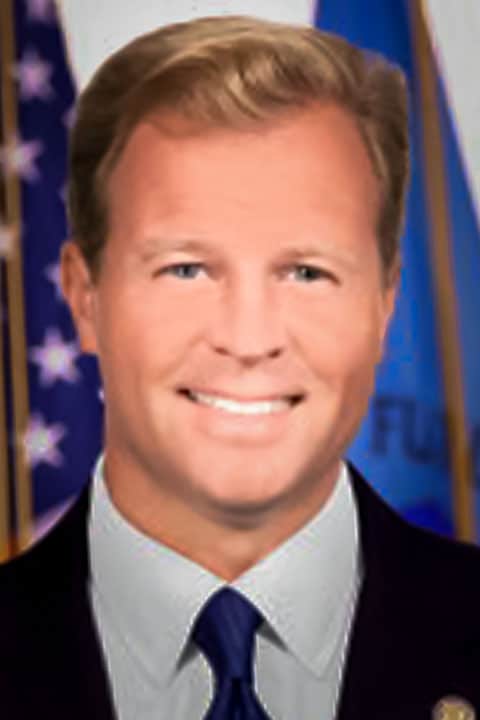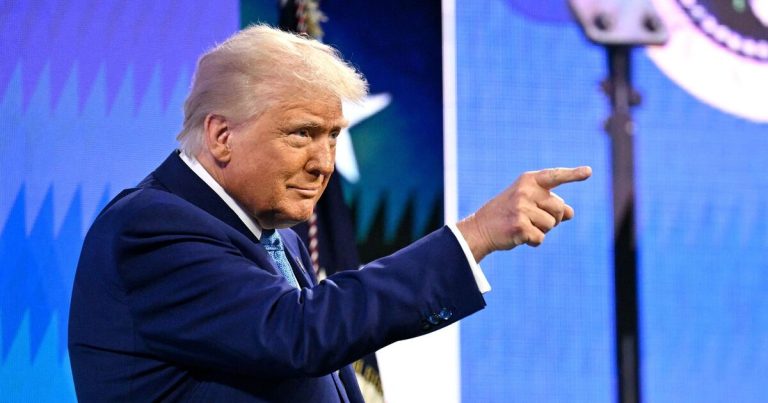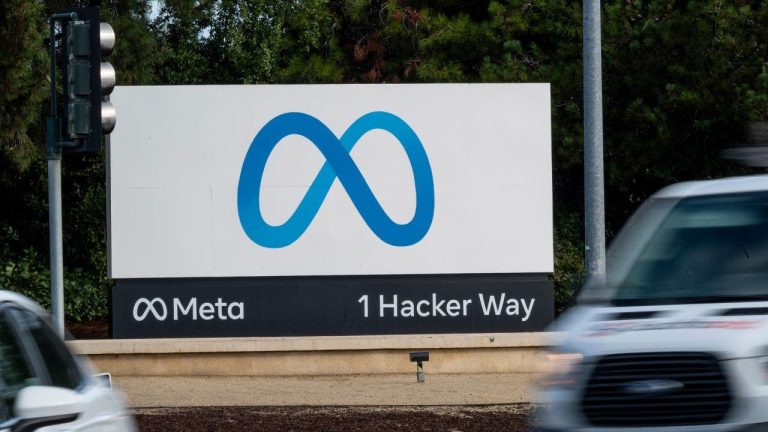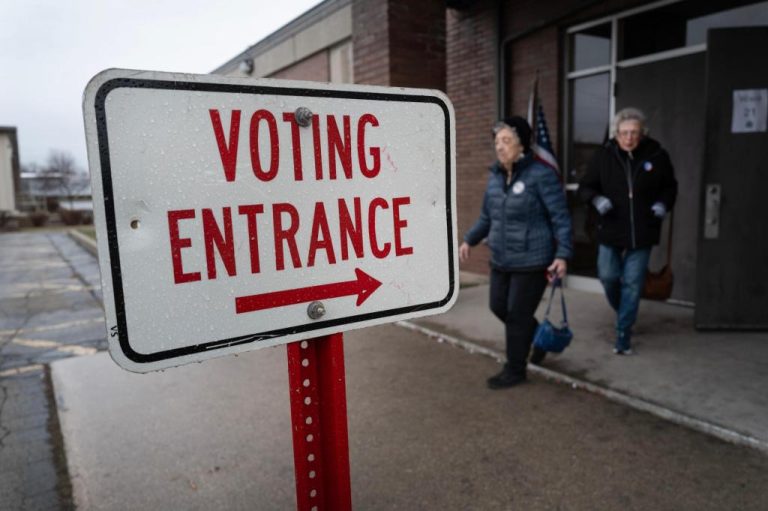
Typically CFTC commissioners do not weigh in on issues where they have had recent financial or business ties.

Quintenz has not yet given up his board seat at Kalshi.
(CFTC)
Posted February 20, 2025 at 5:40 pm EST.
Brian Quintenz, President Trump’s nominee to chair the Commodities Futures Trading Commission (CFTC), will likely involve himself in matters having to do with prediction markets despite what reports have called conflicts of interest, two sources directly familiar told Unchained. Quintenz has served on the board of prediction market Kalshi, a competitor to popular blockchain-based platform Polymarket, since 2021.
Senior regulators typically recuse themselves from rulemaking and enforcement matters where recently held job titles or investments may compromise their objectivity. Former CFTC and SEC Chairman Gary Gensler, for example, prominently recused himself from an investigation into MF Global in 2016 while leading the CFTC due to his close ties to the firm’s former CEO after criticism from Congress.
Avoiding recusal would free Quintenz, who as chair of the commission would decide what issues rise to the top of the commission’s agenda, to prioritize rulemaking and regulatory interpretations related to prediction markets like Kalshi and Polymarket. The sector reached all-time highs in trading volume in the lead up to the election, with Polymarket attracting $2.6 billion in trading volume in the month of November alone.
Read More: Crypto Expert Brian Quintenz of Andreessen Horowitz Selected to Lead the CFTC
Kalshi is also currently in a court battle with the CFTC after suing the commission in November of 2023 for preventing users from betting on which political party would take control of the House of Representatives (the court granted a stay in October temporarily allowing elections-related contracts while the issue is litigated). Polymarket, meanwhile, blocks US-based users from its platform due to a 2022 settlement with the CFTC for failing to register with the commission. The company is looking to get back into the U.S. market.
In response to emailed questions from Unchained about whether he planned to recuse himself from the Kalshi lawsuit or related issues, Quintenz said “there are robust statutes mandating recusal requirements for prior employment and conflicts of interest. If I have the honor of being confirmed, of course I would abide by them to the letter.”
Sidestepping these matters would likely upset the White House. President Trump, who is known to be upset when officials recuse themselves, was very happy that odds on Polymarket predicted his winning the election long before polls, one source speaking to the administration explained. The source said it was important to Trump to find a chair that would have a generous posture towards prediction markets. Trump also posted about the Polymarket odds on Truth Social. A separate source who was present for the vetting interviews of a different contender for the CFTC Chair nomination said they were also asked about prediction markets in a way that indicated it was a top priority for the administration.
Read More: Kalshi Cleared by Judges to Host U.S. Election-Related Bets
Ethical Shades of Gray
The Office of Government Ethics (OGE) prohibits presidential nominees such as the Chair of the CFTC from acting on matters where they have a business or financial conflict. However, the particulars of how OGE guidance is interpreted and enforced are complex. Nominees are instructed on how to manage conflicts of interest via a publicly-available ethics agreement that contains specific interpretations of their restrictions.
These agreements are typically distributed to senators and made available to the public sometime between the president’s nomination and Senate confirmation, though there have been unusual delays in the case of several of Trump’s nominees this year. According to public records, this agreement has not yet been prepared for Quintenz.
None of the sources who spoke with Unchained believe that Quintenz has any intention to willfully-ignore a legally-binding ethics agreement or any other laws and regulations. However, one of the two sources conceded that ethics restrictions and their enforcement are treated differently under the Trump administration. Trump fired the head of the OGE earlier this month and issued an executive order rescinding Biden-era conflict of interest restrictions in January, signaling a disinterest from the White House in letting ethics rules get in the way of the administration’s priorities. Three other sources unfamiliar with the specifics about Quintenz’ conflicts pointed out that there has been a significant change in tone with respect to ethics requirements under the Trump administration generally.
What Quintenz Could Do
The most likely impact that Quintenz would have on prediction markets is provide updated regulations. Currently, the CFTC requires prediction markets to register with the agency and prohibits event-based contracts involving unlawful activities, terrorism, assassination, war, gaming, or other activities contrary to the public interest. These rules have been interpreted to prohibit betting on elections, for example, and would ostensibly prohibit the contracts where users bet on international conflicts on Polymarket.
Regarding the lawsuit that Kalshi filed against the CFTC, Quintenz would not have the power to unilaterally resolve it, nor would updated rules automatically lead to its settlement or dismissal. However, the CFTC could take a cue from the SEC, where several lawsuits and enforcement actions initiated by the previous administration have been dismissed under a commission friendlier to crypto. Right now the four person commission consists of two Republican and two Democratic commissioners, though if Quintenz is confirmed he will take the place of Democratic Commissioner Christy Goldsmith Romero, whose term has expired, and govern a 3-1 conservative commission.
Regarding Polymarket, a source with expertise on CFTC enforcement explained that it is unlikely that a Quintenz-led commission would reverse its settlement or otherwise address the firm directly. However, if Polymarket decided to register with the CFTC and subject themselves to the restrictions of the CFTC and US law, they could operate in the United States, the source explained. Two different sources familiar with the administration’s thinking said that the Trump administration saw the restrictions on Polymarket as unjust and had looked for a Chair with similar views.
Read More: Trading Volumes on Prediction Markets Will Drop After the November Election. Will New Market Entrants Still Attract Users?
Representatives for Kalshi and Polymarket did not respond to requests for comment.
A representative for Quintenz at a16z crypto declined to respond to specific questions about conflicts of interest restrictions, the president’s opinions on Quintenz’ experience with prediction markets of possible recusal, and whether Quintenz would take steps to dismiss the Kalshi lawsuit or allow Polymarket to operate in the United States.
The White House did not respond to a request for comment.







